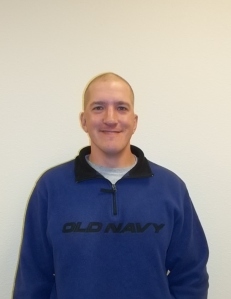CCAI is founded upon the ideal that every child in the world both needs and deserves a safe, loving and permanent family. And we exist to identify the legal and policy barriers that prevent children from realizing this basic right. As we continue to celebrate National Foster Care month, it is important to remember that foster care is not meant to be a permanent solution for children. Children need families and yet of the 101,666 children available for adoption out of foster care in FY 2012, only 52,039 were adopted. Even more concerning, children age nine or older, while accounting for 48 percent of the total number of children in foster care, accounted for only 25 percent (13,184) of these adoptions (U.S. Department of Health and Human Services, 2013).
We are not the only ones who believe that there is no such thing as an unadoptable child. Our friends and partners at the Dave Thomas Foundation for Adoption not only advance this message every day, they practice what they preach. In celebration of National Foster Care Month, CCAI is excited to share the perspective of a social worker who has successfully recruited adoptive families for those children the foster care system said could not be adopted. In his five years as a Wendy’s Wonderful Kids Recruiter in Wyoming, Bryan Cook has been instrumental in helping many kids find permanent homes. Below he speaks of the tools he has on hand, as well as some of the challenges he faces in his daily work to connect children and youth with a loving forever family.

Wendy’s Wonderful Kids (WWK) is a signature program of the Dave Thomas Foundation for Adoption. This program focuses on finding forever families for older youth in foster care. Our mantra is that every child/youth deserves a forever family, and our core belief is “unadoptable is unacceptable.” The Dave Thomas Foundation for Adoption was started in 1992 by the founder of Wendy’s Restaurants, Dave Thomas, and WWK began in 2004.
Many barriers exist in the search for adoptive families—Wyoming is the ninth largest state geographically but has the lowest population of any state, with roughly 500,000 residents. Because of our small population, there are fewer potential adoptive families, and our communities are spread out and rural. Many of the smaller communities in our state may not have the therapeutic, medical or educational services that youth on our caseloads will need when transitioning into their adoptive families.
Wyoming has a lack of pre- and post-adoptive support services for families. This lack of support often reduces the rate of permanency for youth from foster care. I’ve needed to become knowledgeable about all of the services provided in a given city, and researched many online support resources to provide this information to families.
I must be very creative in my search for families. I often partner with foster care coordinators and private adoption agencies to locate prospective families. I also use newspaper, radio, television and even social media to raise public awareness of the need for adoptive and foster families. I do a lot of file mining to locate birth family members for the youth as well as other connections. I then build a genogram for the youth and reach out to the identified family members. Building a genogram and family tree also helps the youth gain a sense of belonging and self. I contact large employers throughout our state to speak with their employees about adoption, and reach out to churches and religious organizations to educate them about the need.
WWK’s child-focused recruitment technique stresses the importance of face-to-face meetings with the youth as often as possible to build a strong relationship. It also helps recruiters better understand the needs of the children and identify the best possible family. This practice produces strong results and makes the youth feel as though they are part of the recruitment process and that their voices are heard. It’s especially important for the older youth on the case load because they typically have a history of multiple placements and abandonment. They long to feel as though they belong and to have lasting relationships.
Late last year I was able to attend the high school graduation for a young man on my caseload. It was a 600-mile round trip in wintry conditions, but I made it. I had promised him I would make it. His caseworker and family members did not attend the ceremony, so he was very glad to see me. By having a strong relationship with him I was able to be there on the proudest day of his life. We were able to take some pictures together, and we even ate the cake that he had made for the occasion. It made me very happy to do it, and I realized that even the smallest of gestures make a world of difference. Moments like this strengthen my resolve and remind me how important our job is.
I am proud to be a youth advocate, mentor and adoption recruiter for youth growing up in foster care. It truly is an honor.
Bryan Cook Wendy’s Wonderful Kids recruiterWyoming
